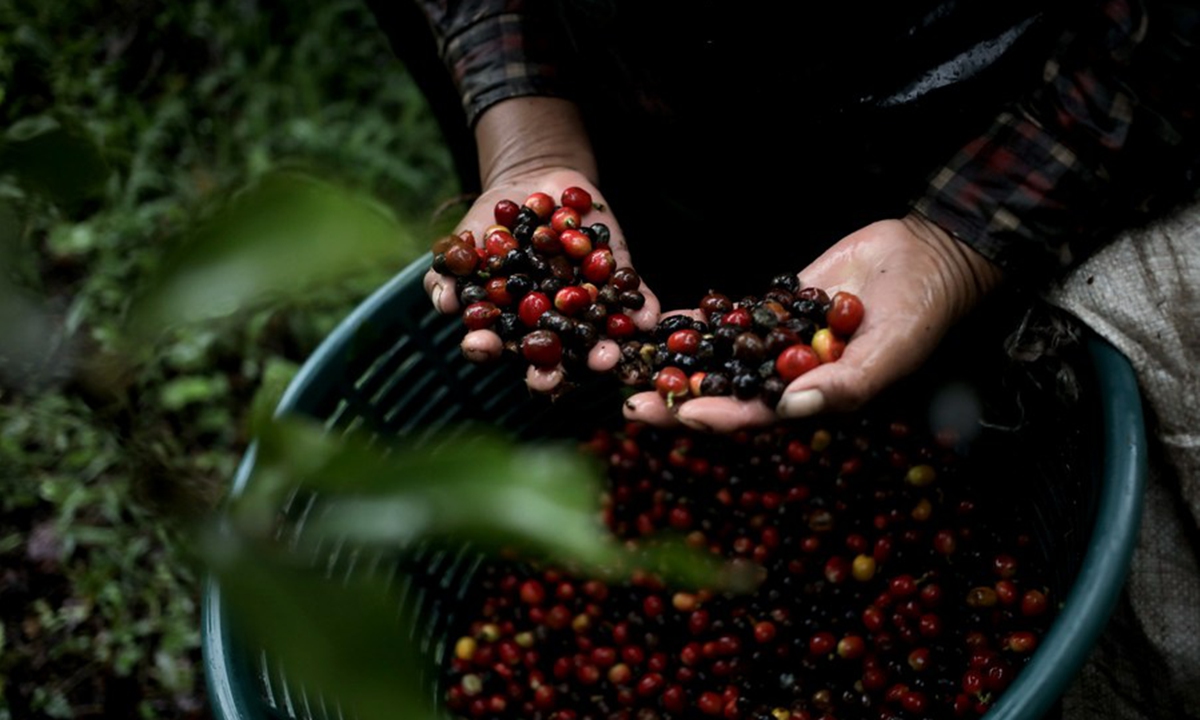Panamanian specialty coffee producers look to Asia in hard times
Source: Xinhua Published: 2020/12/7 14:40:26

Image of May 22, 2019, of a worker from the Ngabe-Bugle ethnic group collecting coffee at the Lamastus Estates coffee farm, in the town of Boquete, province of Chiriqui, Panama. (Xinhua/Mauricio Valenzuela)
Asia is a great potential market for Panama, as the COVID-19 pandemic and the storms Iota and Eta last month have impacted the production and export of specialty coffee in the country.
Plinio Ruiz, president of the Specialty Coffee Association of Panama (SCAP), told Xinhua about the present and future of Geisha coffee, which has spearheaded the country's coffee industry for the last few years.
Panamanian coffees have set records at coffee auctions and are a favorite at international specialty coffee tastings.
Ruiz said Asia is a much more attractive market for Panama's specialty coffee compared with Europe and that it is an ideal market, as it has a young population that loves to try new coffee.
"Asia is an opportunity...There are also economies with purchasing power like that of Japan, in which they love high-quality products," he said.
But Ruiz said it will be necessary for the government to provide economic support to this industry to protect it from risks. For example, recent abundant rainfall has caused landslides on some farms and destroyed infrastructure, he explained.
For Ruiz, the economic crisis due to the pandemic as well as the storms have shown the weaknesses of the specialty coffee industry, whose peak production in the country is around 10,000 kilograms.
Panama's total coffee production, meanwhile, stands at around 200,000 quintals (20,000,000 kilograms), according to the expert.
Ruiz said it was important for the government to provide economic support for the industry, including insurance, low-cost capital, as well as technology transfer and specialization.
According to Ruiz, around 7,500 to 8,000 coffee producers are located in the highlands of Panama, and around 30,000 people work in the industry during harvest seasons.
Posted in: AMERICAS